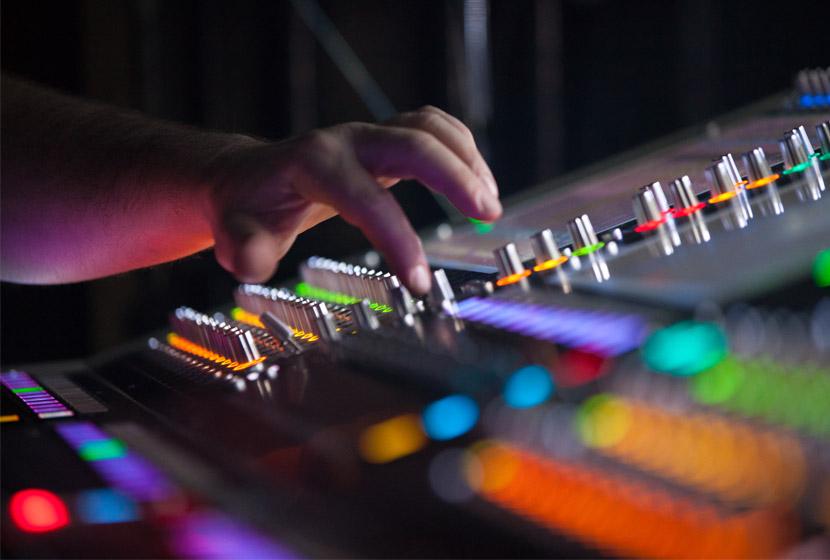Whether for rehearsals, practising for a live performance or one-off recordings, there are lots of studios that can be rented by the hour. This is not necessarily the easiest or cheapest way to do it as you have to move all your equipment, and their sound systems are usually quite basic, but they can be useful.
You are Label
You want to Produce

To compose your music, record it or film it, you are going to need equipment, a venue, financial resources and partners, all while avoiding bad choices and without messing up the administrative management. Here is an inventory of all the aspects that have to be mastered to produce your music successfully.
Making music in your bedroom, whether you're writing it or practising for a live concert, is alright for a while. Eventually parents, neighbours, room mates etc., even the cat, won't be able to stand it any longer!
In short, you will need a studio.
To rehearse, to record, maybe even to produce a master.
Just like sharing an apartment or an office, musicians often make the most of circumstances by sharing studio space. There are often ways in which you can share a studio that you couldn't afford to rent on your own. Some people take it in turns on a weekly basis, others on demand. This solution allows you to keep all your equipment in one place, as well as exchange ideas with fellow musicians. It may even lead to collaborations!
The lucky ones, ie those who can afford it, can turn a room at home into a studio where they can keep their equipment, keyboards and instruments. With some incredible soundproofing you can compose music any time you want, and work out the best instrument set-up for your music. Many famous producers, such as Arnaud Rebotini and John Hopkins, create all their music at home.
Instead of a home studio, some musicians prefer a studio in a dedicated place, where they can really concentrate on their creative work, just like going to the office, with the advantage that they can work whenever they want to. This solution is generally only available to well-established artists who can afford it. We hope you will be one of them.
Check with cultural venues nearby - music schools, cultural centres, theatres, etc. More and more people are using studios that were originally set up specifically to support community projects. Under certain conditions, they may be available to you for varying lengths of time for rehearsals, one-off projects etc., possibly even a whole season. These places often have the advantage of being part of a real cultural ecosystem, from administration to production.
This is perhaps the holy grail: working in a famous studio where stars make their recordings, from Daft Punk to Justice. They are equipped with the finest sound recording equipment available, and you often have the bonus of outstanding sound engineers who can get the best out of your music. But you usually have to make a breakthrough before you reach this point. The record label usually pays the bill, which can be truly eye-watering.
A distinction must be made between recording studios, where the artistic part of the project is recorded with musicians and with the help of one or more sound engineers who work for the mastering studios. This final stage, which is no less artistic but a lot more technical and often incomprehensible to ordinary mortals, is generally carried out by a sound engineer working alone, with no artists around. They endeavour to bring out the unique nuances of your music, using the equipment at their disposal. It represents the final coat of varnish on the master, which allows production to commence.
Consequently, even when you produce your music at home, including professional material, it's important not to forget the mastering stage, which raises the quality of sound to the level of a recording, especially for radio and streaming services.

